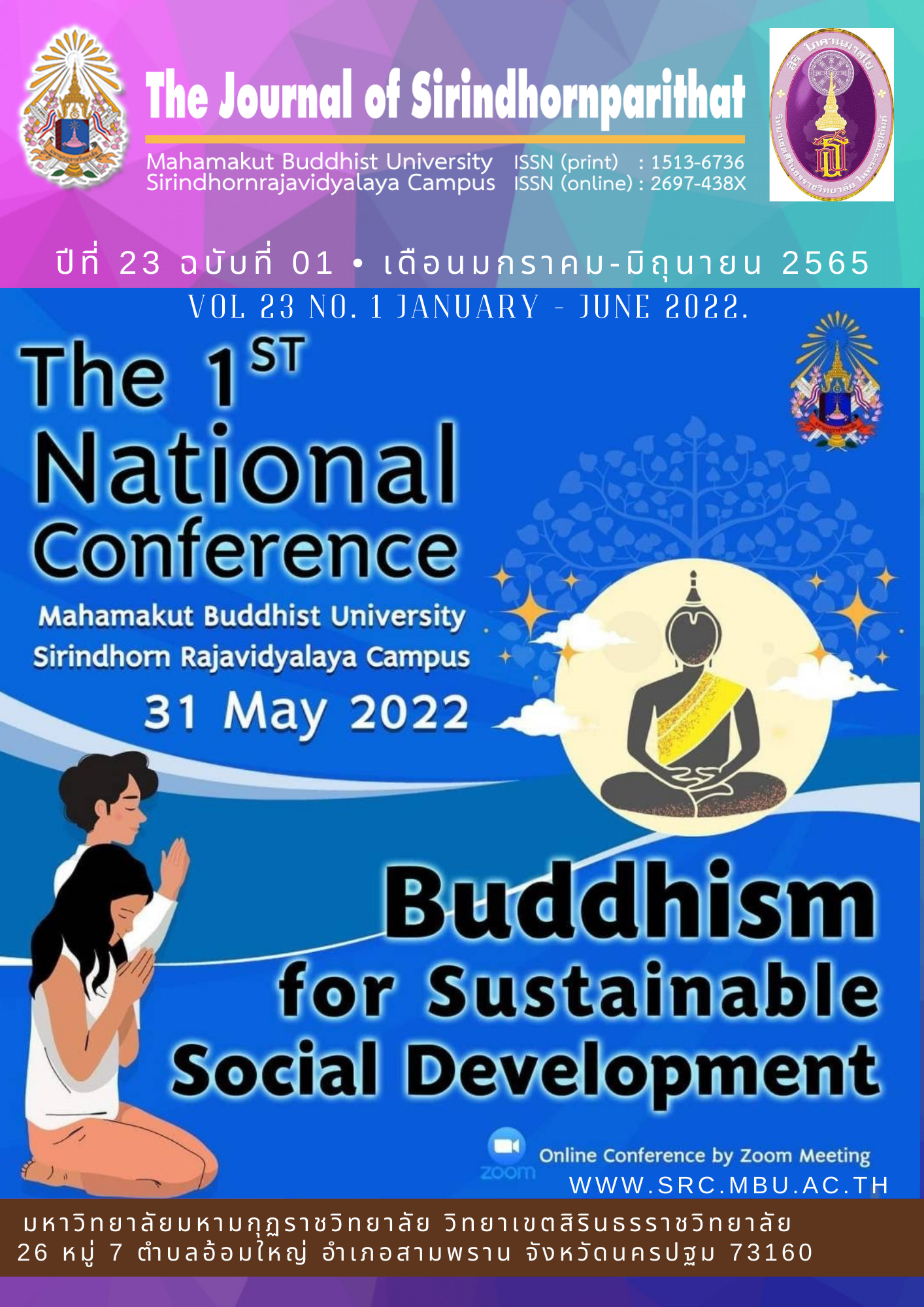The development of instructional model for business English writing based on genre-based approach and lexical bundles for undergraduate students
Keywords:
Instruction Model, Business English Writing, Genre-based Approach, Lexical BundlesAbstract
การวิจัยและพัฒนาครั้งนี้มีวัตถุประสงค์เพื่อ 1) เพื่อพัฒนารูปแบบการสอนภาษาอังกฤษสำหรับการเขียนภาษาอังกฤษธุรกิจตามประเภทและชุดคำศัพท์สำหรับนักศึกษาระดับปริญญาตรี และ 2) เพื่อศึกษาประสิทธิภาพของรูปแบบที่พัฒนาขึ้น เพื่อพัฒนารูปแบบการเรียนการสอน ใช้วิธีแบบผสมผสานในการศึกษานี้โดยการสัมภาษณ์อาจารย์และผู้ประกอบการ ทำแบบสำรวจประเมินความต้องการของนักศึกษา และการสนทนากลุ่ม ต่อจากนั้นจึงใช้ Equivalent Time – Series Design และ Repeat Measures Designs เพื่อตรวจสอบประสิทธิภาพของกระบวนการที่พัฒนาขึ้นกับกลุ่มทดลองของนักศึกษาระดับปริญญาตรี 36 คน ผลการวิจัยพบว่า 1) รูปแบบที่พัฒนาขึ้นประกอบด้วย 7 ระยะหลัก ได้แก่ (1) ระยะกระตุ้นและจดจำ (2) ระยะสรุปโครงสร้างข้อความ (3) ตรวจสอบขั้นตอนองค์ประกอบคำศัพท์ (4) ขั้นตอนการตรวจสอบ (5) ขั้นตอนการแลกเปลี่ยนและการเรียนรู้ (6) ขั้นตอนการเขียนและ (7) ขั้นตอนการรวบรวมความรู้ 2) สำหรับประสิทธิภาพของรูปแบบที่พัฒนาขึ้น ข้อค้นพบจากการแทรกแซงแสดงให้เห็นว่าคะแนนเฉลี่ยการทดสอบการพัฒนาความสามารถในการเขียนของนักเรียนเพิ่มขึ้นอย่างมีนัยสำคัญหลังจากจบแต่ละบทเรียน (พี <0.01). นอกจากนี้ ผลความแตกต่างของค่าเฉลี่ยในการเปรียบเทียบพหุคูณของทั้ง 4 บทเรียนพบว่าความแตกต่างของค่าเฉลี่ยของการวัดซ้ำ (วันที่ 1 - 4 ) แตกต่างกันอย่างมีนัยสำคัญ ( p <0.01)
References
Bhatia, V. K. (1993) Analyzing Genre: Language Use in Professional Settings. London: Longman.
Biber, D., Conrad, & Cortes, V. (2004) If you look at...: Lexical Bundles in University Teaching and Textbooks. applied Linguistics, 25, 371-405.
Chao, LEI. (2016). A Lexical-Chunk Based Study of Business English Correspondence Writing. Sino-US English Teaching, 4, 277-283.
Cortes, V. (2004). Lexical bundles in published and student disciplinary writing; Examples from history and biology. English for Specific Purposes, 23, 397-423.
Feez, S., & Joyce, H. (2002). Text-Based Syllabus Design. Sydney: NCELTR, Macquarie University.
Halliday, M. A. K. and R. Hasan (1985) Language, context and text. Geelong, Deakin University Press.
Hyland, K. (2008). As can be seen: Lexical bundles and disciplinary variation. English for Specific Purposes, 2 7, 4-21.
Kulaporn Hiranburana. (2017). “Use of English in the Thai Workplace.” Kasetsart Journal of Social Sciences 38(1): 31–38.
Nickerson, C, Planken, B (2016) Introducing Business English. London and New York: Routledge.
Phichiensathien, P. (2016). Genre-Based Approach in Academic English Writing. Pasaa Paritat 31, 211-238.
Swales, J. M. (2004). Research genres: Explorations and applications. Cambridge: Cambridge University Press.
Srinon, Udom. (2011). A longitudinal study of developments in the academic writing of Thai university students in the context of a genre-based pedagogy [dissertation]: University of Adelaide, Australia.

Downloads
Published
Issue
Section
License
Copyright (c) 2022 Mahamakut Buddhist University

This work is licensed under a Creative Commons Attribution-NonCommercial-NoDerivatives 4.0 International License.
บทความที่ได้รับการตีพิมพ์เป็นลิขสิทธิ์ของ มหาวิทยาลัยมหามกุฏราชวิทยาลัย วิทยาเขตสิรินธรราชวิทยาลัย
ข้อความที่ปรากฏในบทความแต่ละเรื่องในวารสารวิชาการเล่มนี้เป็นความคิดเห็นส่วนตัวของผู้เขียนแต่ละท่านไม่เกี่ยวข้องกับหาวิทยาลัยมหามกุฏราชวิทยาลัย วิทยาเขตสิรินธรราชวิทยาลัย และคณาจารย์ท่านอื่นๆในมหาวิทยาลัยฯ แต่อย่างใด ความรับผิดชอบองค์ประกอบทั้งหมดของบทความแต่ละเรื่องเป็นของผู้เขียนแต่ละท่าน หากมีความผิดพลาดใดๆ ผู้เขียนแต่ละท่านจะรับผิดชอบบทความของตนเองแต่ผู้เดียว



